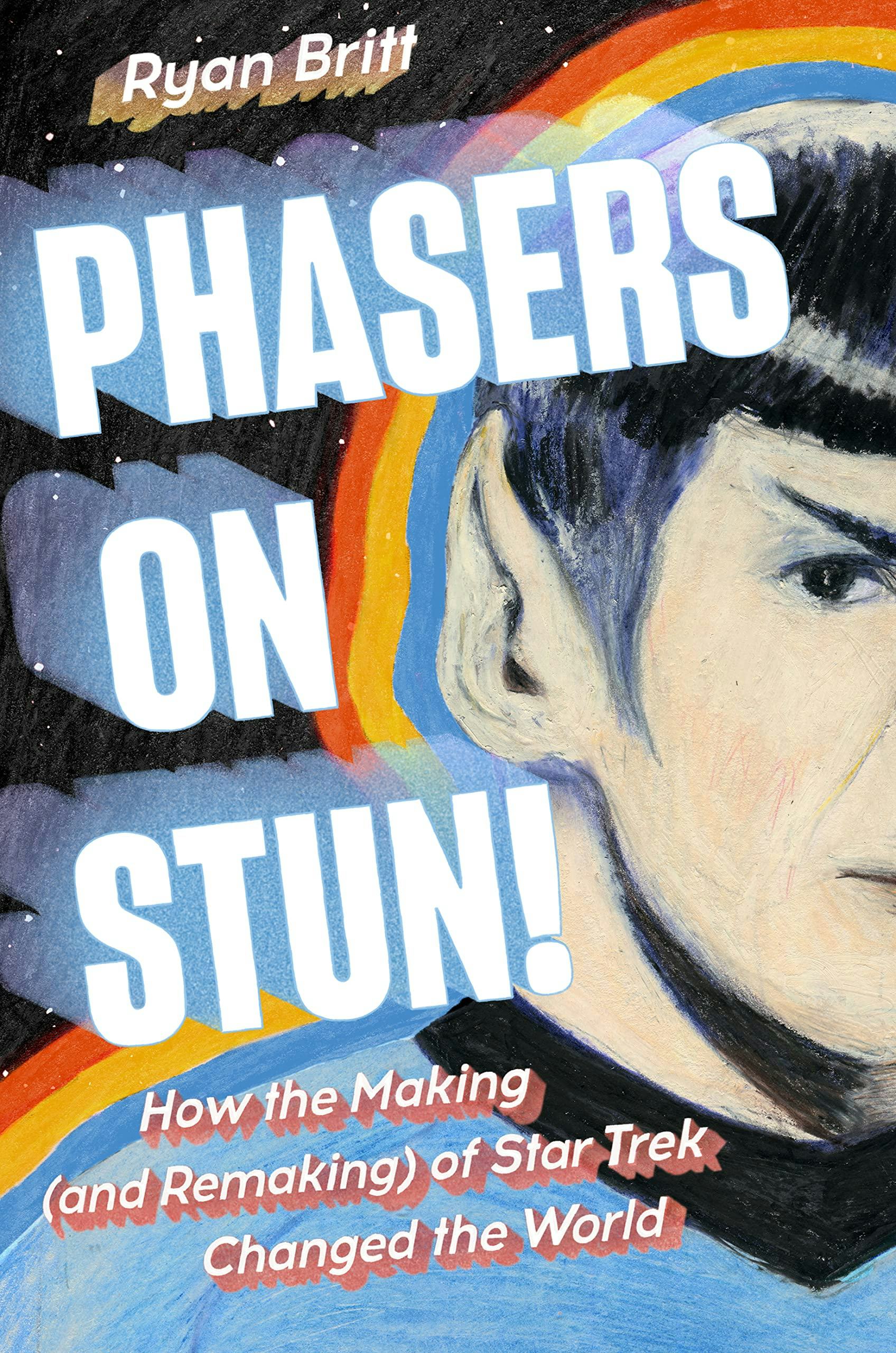
Captain Kirk does not want his pain taken away. If there’s one central message of 1989’s Star Trek V: The Final Frontier, it’s the idea that human beings should be allowed to be messy, flawed, and a little sad, and anyone who offers you a way to cleanse your soul and be free of pain is likely a lunatic cult leader. This kind of iconoclastic humanism is so ingrained in the original 1960s Star Trek series that a huge number of episodes are preoccupied with Kirk unmasking false prophets in the form of oppressive automated computers, all-powerful aliens, and other Starfleet captains who decide to implement authoritarianism on a backwater planet.
On June 12, 1989, 20 years after The Original Series was canceled, William Shatner’s directorial debut doubled down on the classic theme of Kirk versus a Space Fraudster. In The Final Frontier, Kirk and the crew of the Enterprise go up against not only Spock’s off-his-rocker brother Sybok (Laurence Luckinbill) but also a malicious false God. Thirty-five years after the movie’s release, this supposedly horrible Star Trek movie actually holds up pretty well, if you view it as an extended episode of the original show.
After the slam-dunk of The Voyage Home, the second Star Trek movie in a row directed by Leonard Nimoy, the franchise decided to let Shatner take the reigns. Unsurprisingly, The Final Frontier is a very Kirk-centric movie, despite ostensibly being about Spock’s weirdly emotional half-brother. After an opening scene in which Sybok recruits someone into a cult, The Final Frontier shifts to a camping trip where Kirk climbs a mountain in Yosemite National Park.
Captain Kirk falls off the mountain, only to be rescued by Spock and his sick rocket boots. Then Kirk, Spock, and Bones sit around the campfire, drink whiskey, eat beans, sing “Row, Row, Row Your Boat,” and wax philosophical about their mortality. It’s charming and funny, with Deforest Kelley’s Bones in particularly good form.

But Sybok has taken several ambassadors hostage in an effort to lure a Federation starship to Nimbus III, a neutral planet that comes across as a low-rent Mad Max world. The Enterprise races to the rescue and falls into Sybok’s trap. Using his hypnotic “pain sharing” trick, he takes over the Enterprise, turning everyone into a mental health guru who doesn’t mind taking the ship to the center of the galaxy to find God. Kirk becomes the only person who refuses to get involved with Sybok’s Scientology-ish cult, but since the Enterprise ends up at the center of the galaxy anyway, they might as well stop by and see if God is there, just in case.
Fans of The Animated Series will note that the crew already visited the galaxy’s center in the 1973 episode “The Magicks of Megas-Tu,” in which a demonic-looking character named Lucien turns out to be a friendly, misunderstood alien. The Final Frontier flips this premise: the crew finds a malevolent false God who’s lured in Sybok and the Enterprise to help him escape a weird celestial prison. But that’s okay. Kirk loves this kind of thing, leading to one of the greatest lines in the entire franchise: “Excuse me... what does God need with a starship?”
With all of this hyperbolic philosophizing and introspection about the nature of the human soul, one might wonder why Trek fans don’t love this movie. Isn’t this kind of story what made the franchise famous? Yes, but the form of The Final Frontier is inferior to its function. Had this been a long episode of the 1960s show, it may have been a classic. Or, had the special effects, casting, and pacing all been a bit better, then it may have been viewed as a decent movie.

But Luckinbill is tragically miscast as Spock’s brother, and the supporting cast of Scotty, Sulu, Chekov, and Uhura all seem to act out of character, so the whole thing comes across more like a thought experiment than a film. Infamously, Sean Connery was Shatner’s first pick to play Sybok, but he chose to play Henry Jones Sr. in Indiana Jones and the Last Crusade instead. In the summer of 1989, when The Final Frontier received less than kind reviews, it was clear Connery chose wisely.
But after all this time, The Final Frontier is charming enough to hold up against at least a 100 middling episodes of various Trek series. In fact, the 2022 Strange New Worlds pirate episode “The Serene Squall” brought back Sybok as a last-minute twist, but it's tough to argue that episode is somehow better than The Final Frontier.
That’s not to say The Final Frontier is a secret success, or that episodes like “The Serene Squall” are bad. But The Final Frontier has been judged by the wrong metric. Is it one of the worst Star Trek movies? Yes. But is it one of the worst Star Trek things? No way. When you’ve got Captain Kirk going in for a hug and Spock saying, “Please Captain, not in front of the Klingons,” it’s hard to hate it. The Final Frontier wasn’t the most original Trek adventure, but like a faded photograph in a family album, time has made it feel like a cherished memory. A throwback when it was released, The Final Frontier now feels decidedly retro in the best way possible.
Phasers on Stun!: How the Making — and Remaking — of Star Trek Changed the World








